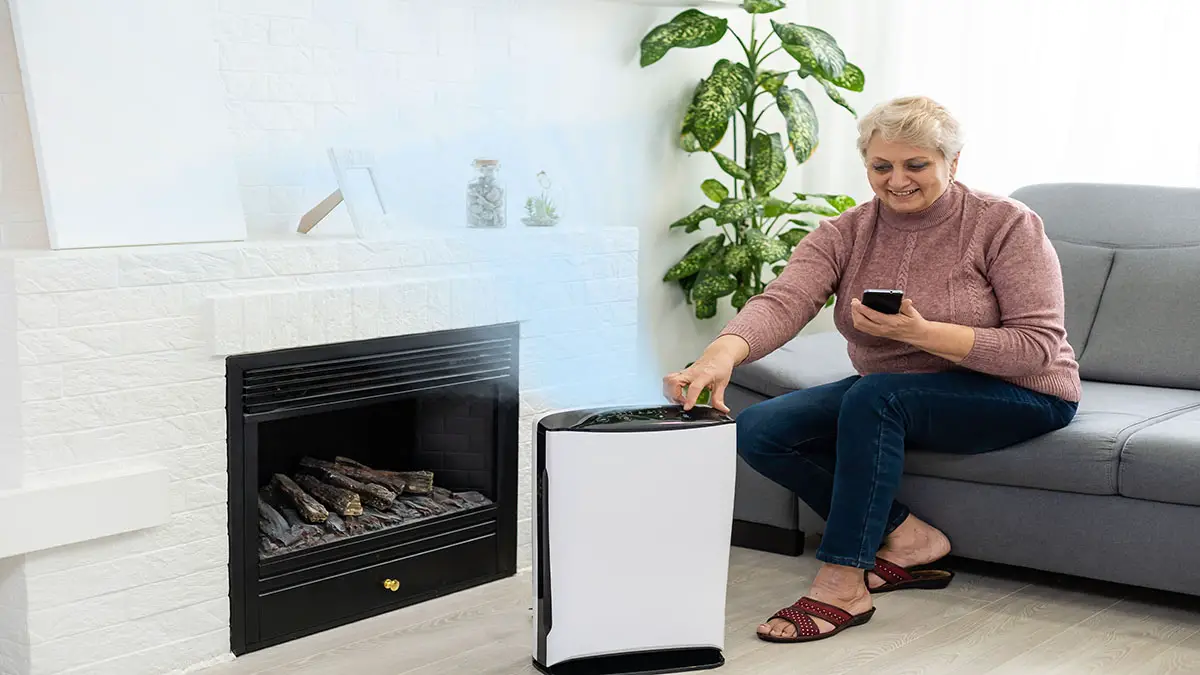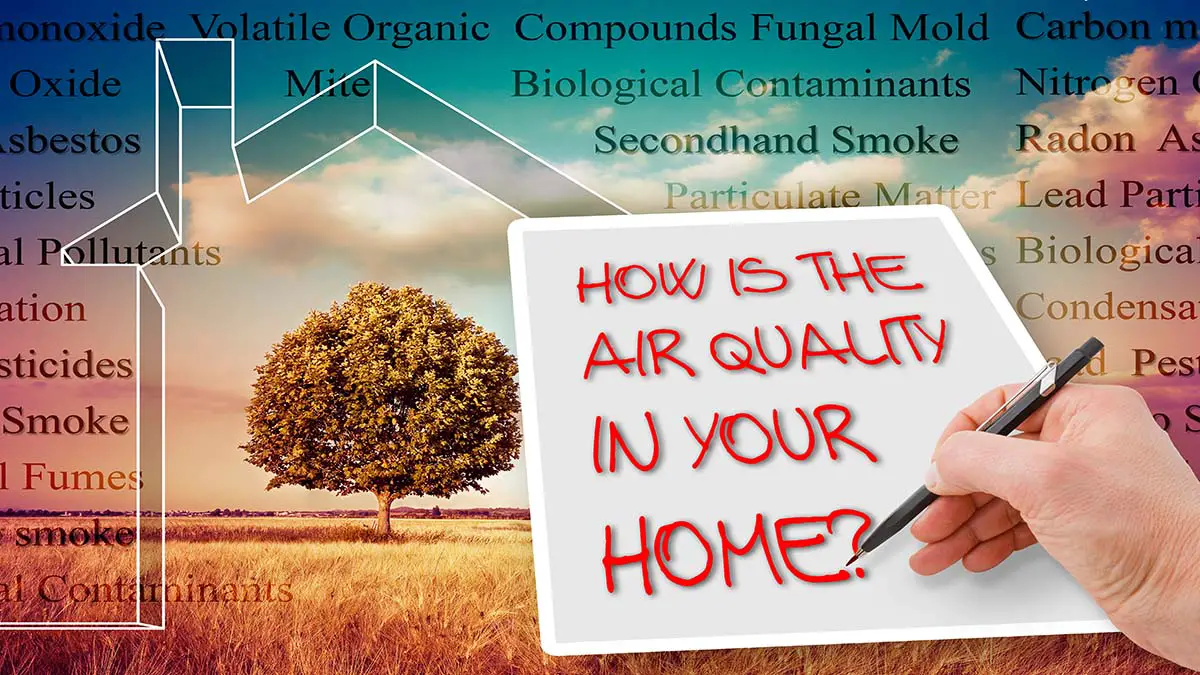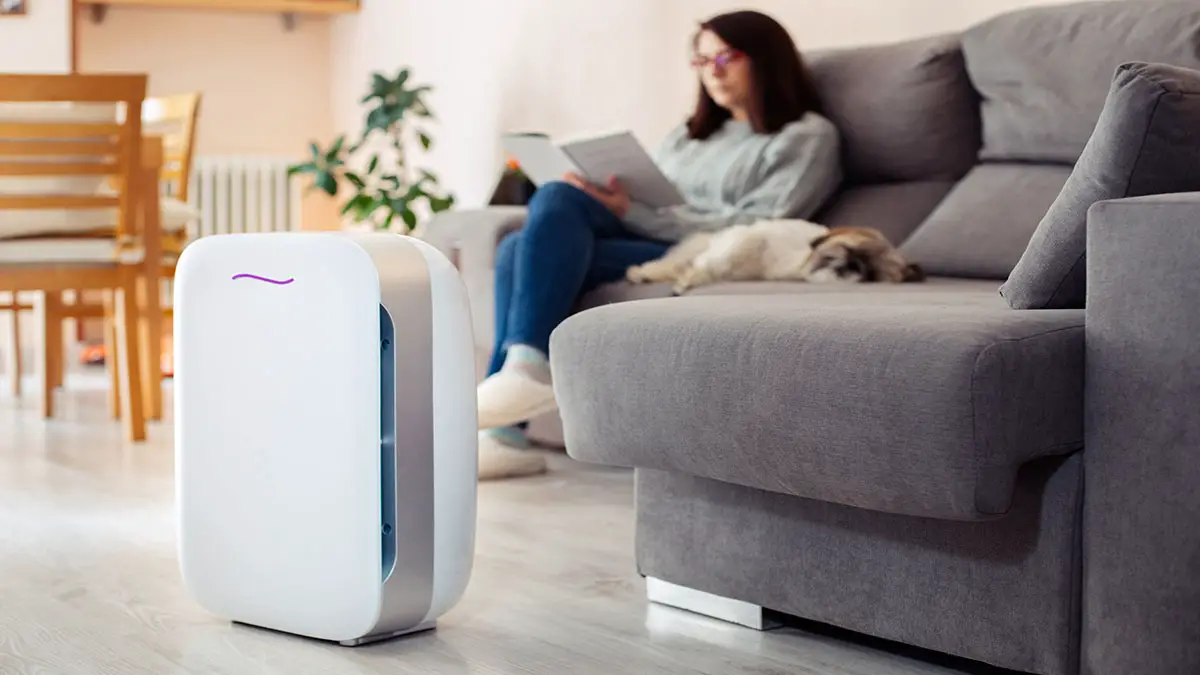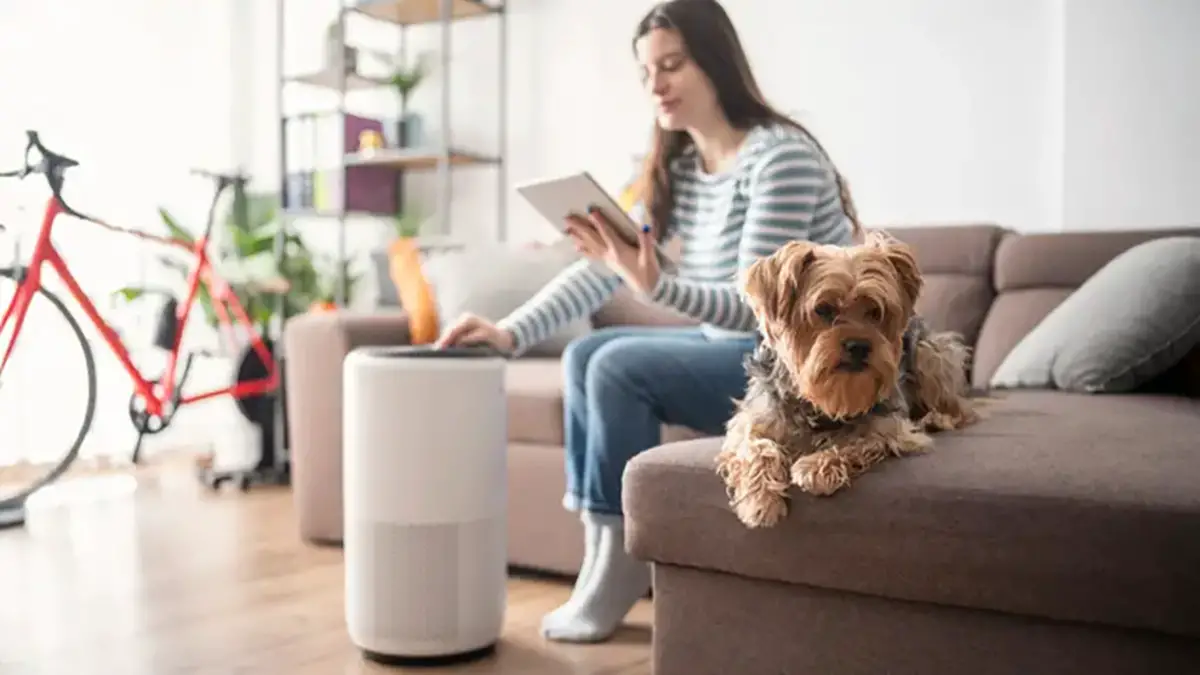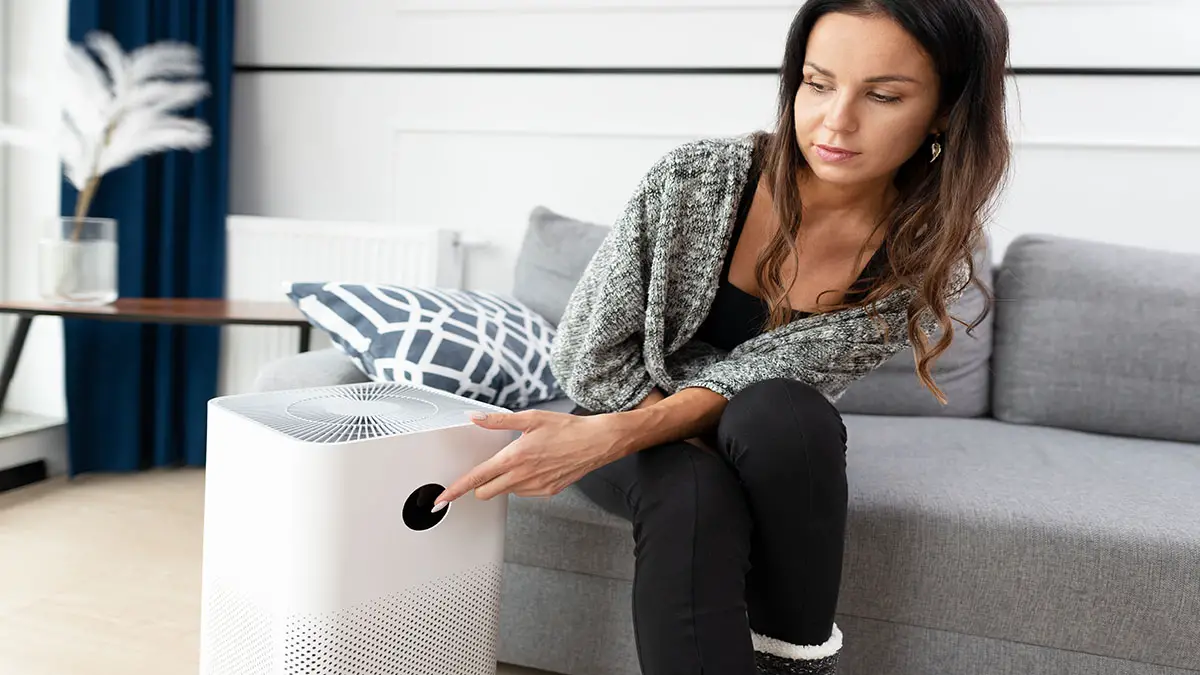If you want to improve the air quality in your home or office, an air purifier can be an excellent investment. Air purifiers remove harmful particles like dust, pollen, and pet dander.
Many different types of air purifiers are available, each with unique features and benefits. In this article, we’ll explore the most common types of air purifiers on the market and help you choose the best one for your needs.
According to studies, people spend 65% of their time indoors at home. Sometimes, the air inside can have tiny particles called ‘particulate matter’, which can be bad for our health, causing problems like asthma or even heart disease. 1
One of the best ways to make indoor air healthier is by using air purifiers, especially those with HEPA filters. These purifiers are great because they’re easy to use; you can move them around to where you need them, and they don’t need a big air system to work.
They’ve been shown to help clean the air, especially for people with health issues like asthma or when there’s a lot of smoke outside from things like wildfires.
One of the most popular types of air purifiers is the HEPA filter. HEPA stands for High-Efficiency Particulate Air, and these filters are designed to capture particles as small as 0.3 microns.
Read More: Best Air Purifiers & Reviews
This includes common allergens like dust, pollen, pet dander and more harmful particles like mold spores and bacteria. HEPA filters are highly effective at removing these particles from the air, making them an excellent choice for people with allergies or respiratory issues.
Another type of air purifier is the activated carbon filter. These filters work by adsorbing harmful gases and chemicals from the air, such as volatile organic compounds (VOCs), tobacco smoke, and cooking fumes. Activated carbon filters are often used with HEPA filters for comprehensive air purification.
Some air purifiers also come with UV-C lights, which can help kill bacteria and viruses in the air.
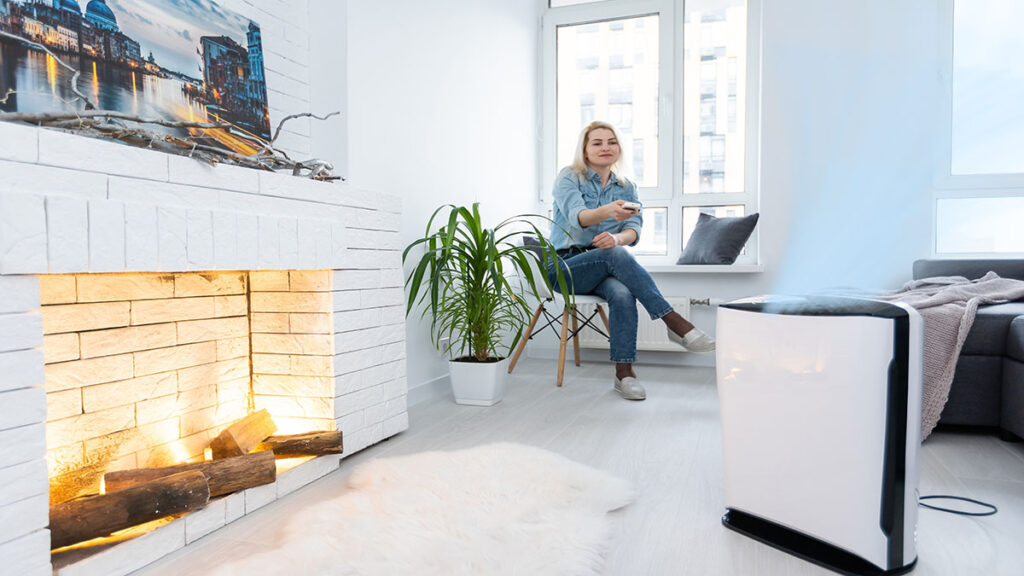
Understanding Air Purifiers
Air purifiers filter the air in a room or enclosed space, removing harmful particles and pollutants. They are handy for people with allergies or respiratory problems and those living in areas with high pollution levels.
There are several different types of air purifiers, each with strengths and weaknesses. Some of the most common types include:
- HEPA Filters: These are the most popular type of air purifier designed to remove particles as small as 0.3 microns. They force air through a fine mesh that traps pollutants, such as dust, pollen, and pet dander.
- Activated Carbon Filters: These filters are designed to remove odors and chemicals from the air. They work by trapping molecules in tiny pores, which can help to reduce the smell of smoke or cooking odors.
- UV-C Lights: These air purifiers use ultraviolet light to kill bacteria and viruses in the air. They are particularly useful for people with allergies or respiratory problems, as well as those living in areas with high pollution levels.
- Ionic Air Purifiers: These air purifiers work by charging particles in the air, which then stick to surfaces in the room. While they effectively remove pollutants, they can also produce ozone, harming some people.
When choosing an air purifier, you must consider your specific needs and the type of pollutants you want to remove. HEPA filters are generally considered the most effective type of air purifier, but they can be more expensive than other options.
It is also important to consider the size of the room you want to purify, as well as the noise level of the air purifier. Some models are designed to be quiet, while others can be quite loud.
Overall, air purifiers can greatly improve the air quality in your home or office. By understanding the different types of air purifiers available, you can choose the one that best meets your needs and helps you breathe easier.
Types of Air Purifiers
There are several types of air purifiers available on the market. Each type of air purifier uses different technologies to clean the air. 2 Here are some of the most common types of air purifiers:
Mechanical Filters
Mechanical filters are one of the most popular types of air purifiers. They work by trapping airborne particles in a filter as air passes through it. These filters can capture particles as small as 0.3 microns, including pollen, dust mites, and pet dander. Mechanical filters are available in different types, including HEPA filters, which are highly effective at removing airborne particles.
Activated Carbon Filters
Activated carbon filters are another type of air purifier. They work by adsorbing odors and chemicals from the air. These filters effectively remove cigarette smoke, cooking odors, and other unpleasant smells. Activated carbon filters are not effective at removing particles from the air.
Ozone Generators
Ozone generators are controversial air purifiers that work by producing ozone, a gas that reacts with airborne particles to remove them from the air. However, ozone can harm humans and pets, and the EPA does not recommend using ozone generators.
Ultraviolet Germicidal Irradiation
Ultraviolet germicidal irradiation (UVGI) air purifiers use ultraviolet light to kill bacteria, viruses, and other microorganisms in the air. These purifiers effectively remove harmful pathogens from the air but do not remove particles or odors.
Photocatalytic Oxidation
Photocatalytic oxidation (PCO) air purifiers use a combination of ultraviolet light and a catalyst to remove pollutants from the air. These purifiers effectively remove odors, volatile organic compounds (VOCs), and other pollutants from the air.
In conclusion, each type of air purifier has its own advantages and disadvantages. When choosing an air purifier, you must consider your specific needs and the type of pollutants you want to remove from the air.
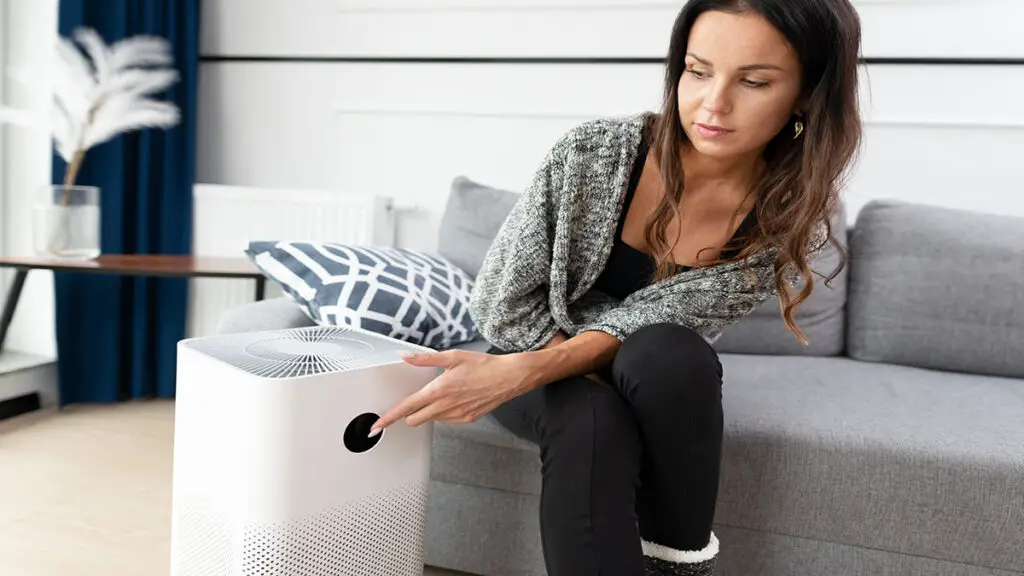
Key Considerations When Choosing an Air Purifier
When it comes to choosing an air purifier, there are several key considerations you should keep in mind. These considerations will help you select an air purifier that is best suited for your needs.
Room Size
The room size where you plan to use the air purifier is important. Air purifiers are designed to work within a certain square footage range, so it’s important to choose an air purifier that is appropriate for the size of your room.
If you choose an air purifier that is too small for your room, it may not be effective in cleaning the air. On the other hand, if you choose an air purifier that is too large for your room, you may waste energy and money.
Noise Level
Another important consideration when choosing an air purifier is the noise level. Some air purifiers can be quite loud, which can be a problem if you plan to use the air purifier in a bedroom or other quiet space. Look for air purifiers with a low noise level or a “sleep mode” that reduces the noise level during use.
Energy Efficiency
Energy efficiency is another important consideration when choosing an air purifier. Look for air purifiers with an Energy Star rating, which meets certain energy efficiency standards. Choosing an energy-efficient air purifier can help you save money on energy bills.
Maintenance
Finally, consider the maintenance requirements of the air purifier you are considering. Some air purifiers require frequent filter changes, which can be costly and time-consuming. Look for air purifiers with washable or reusable filters, saving you money and hassle in the long run.
You understand how to properly maintain and clean your air purifier to ensure it continues working effectively over time.
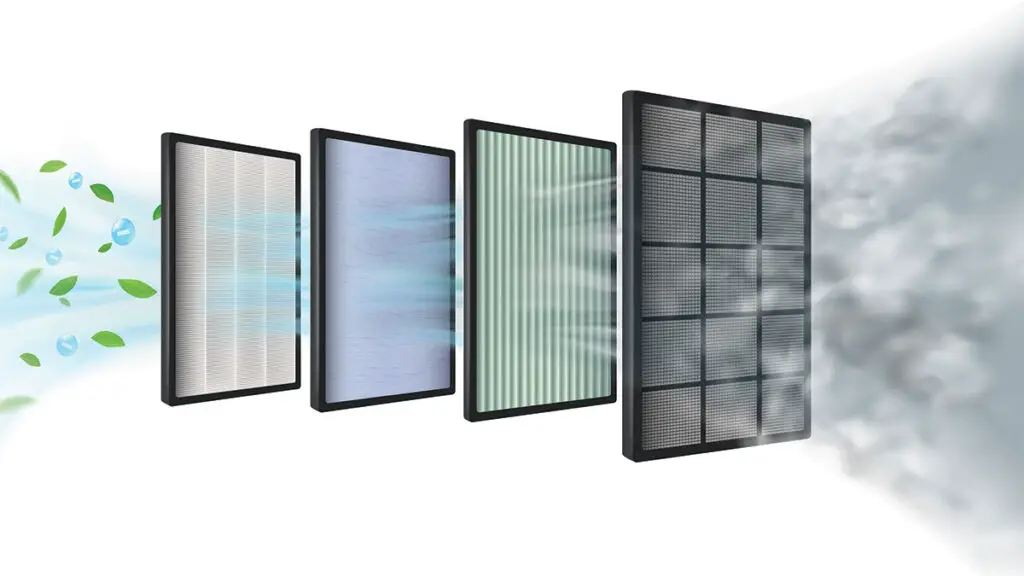
Benefits of Using Air Purifiers
Air purifiers can provide many benefits for your home and health. Here are some of the most notable benefits:
Allergen Reduction
An air purifier can be a great investment if you suffer from allergies. Air purifiers can help reduce the amount of allergens in the air, such as pollen, pet dander, and dust mites. By removing these allergens from the air, you may experience fewer allergy symptoms, such as sneezing, coughing, and itchy eyes.
Asthma and Respiratory Health Improvement
Air purifiers can also benefit those with asthma or other respiratory issues. By removing pollutants and irritants from the air, air purifiers can help improve air quality and reduce the risk of asthma attacks and other respiratory issues. This can be especially important for children and the elderly, who may be more susceptible to respiratory issues.
Odor Elimination
Air purifiers can also help eliminate unpleasant odors in your home. Whether from cooking, pets, or smoking, air purifiers can help remove these odors, leaving your home smelling fresh and clean.
Potential Drawbacks of Air Purifiers
When considering purchasing an air purifier, it is important to know its potential drawbacks.
Cost
One of the biggest drawbacks of air purifiers is their cost. Depending on the type and size of the unit, air purifiers can range from relatively inexpensive to quite expensive. Some types of air purifiers require replacement filters or other parts, which can add to the overall cost over time.
Before purchasing an air purifier, it is important to consider the upfront and ongoing maintenance costs.
Ozone Production
Some air purifiers, particularly those that use ionization or ozone generation, can produce ozone as a byproduct. While ozone can effectively remove odors and other pollutants from the air, it can also harm human health in high concentrations.
If you are considering an air purifier that produces ozone, it is important to research the potential health effects and make an informed decision.
Maintenance Requirements
Another potential drawback of air purifiers is their maintenance requirements. Depending on the unit type, air purifiers may require regular filter replacements, cleaning, or other maintenance tasks. Failure to perform these tasks can reduce effectiveness or even damage the unit.
Before purchasing an air purifier, it is important to research the maintenance requirements and consider whether you can perform the necessary tasks.
FAQs
What is the most recommended air purifier?
The most recommended air purifier often varies based on individual needs and room size, but models with High-Efficiency Particulate Air (HEPA) filters are widely praised for their effectiveness in capturing airborne particles, including allergens and pollutants.
What is the best air purifier method?
HEPA filtration is highly effective for allergens and particulates, while activated carbon filters are better for removing odors and gases, and UV-C light can kill bacteria and viruses. Choosing an air purifier that utilizes a multi-stage approach to air purification is best.
What are the differences in air purifiers?
Air purifiers differ mainly in filtration technology, coverage area, and additional features. Common types include HEPA filters for particulates, activated carbon for odors, UV-C light for pathogens, and ionizers for dust and allergen removal.
What type of air purifier filter is best?
HEPA filters are excellent for removing particulates like dust and pollen. Activated carbon filters are ideal for absorbing odors and chemicals.
Conclusion
In conclusion, choosing the right air purifier for your needs can significantly affect air quality. Several types of air purifiers are available in the market, each with unique features and benefits.
HEPA air purifiers are highly effective in removing pet dander, pollen, and other allergens from the air. They are also capable of removing small particles of dust and smoke.
Activated carbon air purifiers are ideal for removing odors, smoke, and volatile organic compounds (VOCs) from the air. They are not as effective in removing allergens as HEPA air purifiers.
UV-C air purifiers use ultraviolet light to kill bacteria and viruses in the air. They are ideal for people with respiratory illnesses or those who want to prevent the spread of germs.
Ionic air purifiers effectively remove airborne particles such as dust and pollen. However, they produce ozone, which can be harmful to your health.
When choosing an air purifier, consider the size of the room, the type of pollutants you want to remove, and your budget. Choosing a reputable brand and ensuring the air purifier meets safety standards is also important.
Investing in a good air purifier can help improve the air quality in your home or office, reduce allergy symptoms, and promote better health.
- Cooper E, Wang Y, Stamp S, Burman E, Mumovic D. Use of portable air purifiers in homes: Operating behaviour, effect on indoor PM2. 5 and perceived indoor air quality. Building and Environment. 2021 Mar 15;191:107621.
- Szczotko M, Orych I, Mąka Ł, Solecka J. A review of selected types of indoor air purifiers in terms of microbial air contamination reduction. Atmosphere. 2022 May 13;13(5):800.



